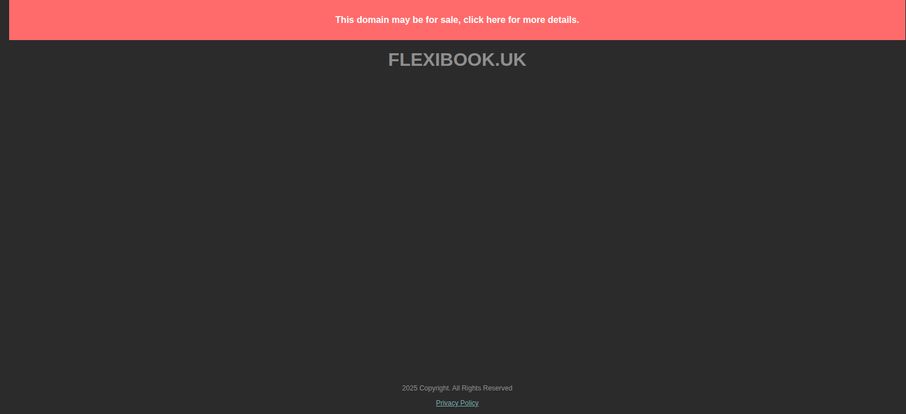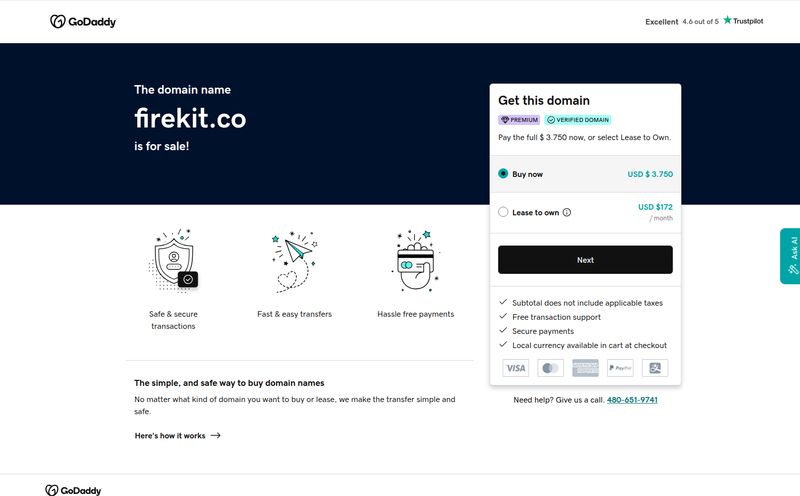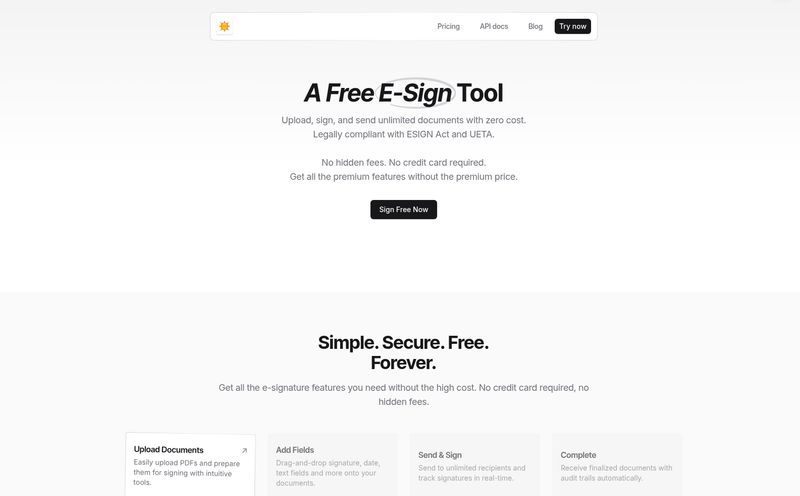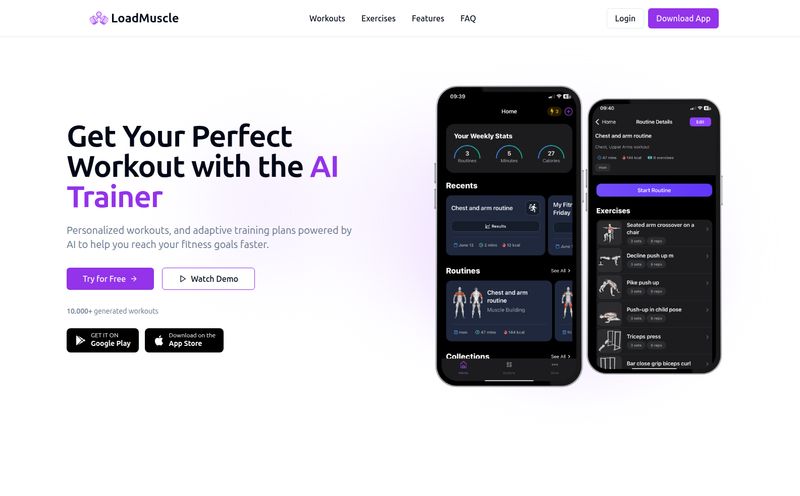We’ve all been there. You step off a red-eye flight at 7 a.m., feeling like a crumpled-up piece of paper. Your body is screaming for a shower and a horizontal surface, but your mind knows the grim truth: hotel check-in isn’t until 3 p.m. So begins the long, bleary-eyed shuffle. You could find a coffee shop and nurse a latte for six hours, or maybe wander aimlessly through a museum you’re too tired to appreciate. It's a special kind of travel purgatory, and honestly, I am so over it.
For years, I've complained to anyone who would listen that the rigid hotel check-in/check-out system is one of the most anti-consumer practices left in the travel industry. It’s a system built for the hotel’s convenience, not the guest’s. So when I heard about a platform called FlexiBook, my ears perked up. Could this be it? The hero we’ve been waiting for?
The Tyranny of the Hotel Clock
Let's be real for a second. The standard 3 p.m. check-in and 11 a.m. check-out is an archaic model. It's a hangover from a time before global travel meant hopping across time zones at all hours of the day and night. Hotels will tell you it's for logistical reasons – housekeeping needs a predictable window to turn over rooms. And I get that, I really do. But in an age where you can get a burrito delivered by a drone, it feels a little absurd that we can’t figure out a more dynamic system for room access.
This rigid schedule forces travelers into awkward and costly situations. You either pay for an extra night you don't fully need just to get in early, or you kill time, exhausted and frustrated. It’s a friction point that desperately needs a modern solution.
So, What Is FlexiBook Supposed to Be?
Enter FlexiBook. The concept is beautifully simple. It's an app and platform designed to connect travelers with hotels and motels that offer flexible check-in and check-out times. Instead of being shackled to the hotel's clock, you get to tailor your stay to your own schedule.
Think of it like an à la carte menu for your hotel stay. You only book the hours you actually need. Arriving at 9 a.m.? No problem. Need to stay until 6 p.m. to catch a late flight? Done. It aims to transform the hotel booking experience from a rigid, one-size-fits-all product into a customized, on-demand service. It’s a simple idea, but one that could genuinely revolutionize how we approach short-term stays.

Visit FlexiBook
The Features That Caught My Eye
Looking at what FlexiBook promises, a few things really stand out. First and foremost is the customizable check-in and check-out. This is the whole ballgame. The freedom to align your accommodation with your actual travel plans is huge. Imagine landing from an international flight and knowing you can head straight to your room for a nap. Game-changing.
Next is the idea of a curated network of flexible hotels. One of the biggest pains right now is having to call hotels individually to beg for an early check-in, often with mixed results. Having a single platform where you know every hotel listed is open to the idea of flexibility would save so much time and uncertainty. It takes the guesswork out of the equation. Finally, the promise of real-time updates and notifications adds a layer of modern convenience. A simple ping to your phone saying, “Your room is ready,” is exactly the kind of smooth experience travelers crave.
The Obvious Upsides of Booking Flexibly
The benefits here are almost self-evident. No more zombie-walking through a strange city for hours on end. No more awkward moments asking a cafe if you can leave your giant suitcase in a corner while you pretend to enjoy a croissant. For business travelers on a quick in-and-out trip, it’s a productivity miracle. For leisure travelers with long layovers, it turns a dreadful wait into a chance to properly rest and recharge.
I've personally lost count of the times I've checked out at 11 a.m. but my flight wasn't until 9 p.m. You're left in a strange limbo—homeless for ten hours with all your luggage in tow. A flexible check-out would completely solve this, letting you enjoy your last day in a city without playing the “what do we do with our bags?” dance. It just makes sense.
Let's Be Realistic: The Potential Downsides
Of course, no solution is perfect. The most glaring potential issue for a platform like FlexiBook is the network limitation. A service like this is only as good as the number and quality of hotels it partners with. If they don't have options in the cities you travel to, the app is effectively useless. Building that network is the classic chicken-and-egg problem for any new marketplace: you need hotels to attract users, and you need users to attract hotels. It's a tough nut to crack.
The other consideration is availability. Even if a hotel is part of the FlexiBook network, a flexible check-in might not be possible if they were fully booked the night before. True flexibility is dependent on occupancy rates, which can be unpredictable. So while the promise is there, the execution might vary from stay to stay.
A Wrinkle in the Plan: Where Is FlexiBook.uk?
Okay, so here’s where things get a bit weird. As I was digging into this to get a feel for the platform, I hit a major snag. I went to check out their site, FlexiBook.uk, and was greeted with a banner that reads, “This domain may be for sale.”
Uh oh.
Full disclosure, this is not what you want to see when researching an exciting new tool. This could mean a few things. It might be a startup idea that never got off the ground. Perhaps they pivoted or rebranded under a new name. Or maybe it's just a temporary issue. Whatever the reason, it's a pretty big question mark hanging over the actual existence of FlexiBook as a functioning service right now.
But you know what? The state of that one domain doesn’t invalidate the concept. The idea of FlexiBook is more important than the platform itself. It speaks to a massive, unmet need in the market. The demand for this kind of flexibility is real and growing, and other companies are starting to notice. Services like Dayuse.com and HotelsByDay have been offering hourly bookings and day-use rooms for a while, proving the model works. The future is flexible, even if FlexiBook itself is currently missing in action.
What About Pricing?
Given the mysterious status of the website, it’s no surprise that there’s no pricing information available. Speculatively, a service like this could work in a few ways. Hotels might offer hourly rates, charge a flat premium fee for the convenience of a flexible check-in, or perhaps the cost would be dynamically calculated based on demand. Personally, I’d happily pay a reasonable surcharge to avoid the 7 a.m. arrival limbo. The value of my time (and sanity) is worth it.
Frequently Asked Questions About Flexible Hotel Bookings
Why do hotels have rigid check-in times anyway?
Primarily for operational efficiency. It gives their housekeeping staff a predictable, consolidated block of time to clean and prepare rooms for the next wave of guests. It simplifies logistics, but it comes at the cost of guest convenience.
Are there other apps like the FlexiBook concept?
Yes! The demand for this has spawned a few players. The most well-known are Dayuse.com, HotelsByDay, and sometimes larger booking platforms like Booking.com will show properties that offer hourly rates or special arrangements if you filter correctly. They all aim to solve the same problem.
Is booking a hotel by the hour more expensive?
Not necessarily. Often, booking a room for a 6-hour block during the day is significantly cheaper than booking it for a full overnight stay. However, if you're using it to extend a traditional overnight stay (e.g., checking in very early or leaving very late), hotels may charge a premium or a percentage of the nightly rate.
How does a flexible check-out actually work?
Typically, you'd arrange it through the platform or directly with the hotel. They would block the room for you until your desired departure time, ensuring housekeeping doesn't come knocking. This usually depends on whether they have a new guest scheduled to check into that specific room later that day.
What’s the difference between a late check-out and a flexible check-out?
A standard late check-out is often a small, pre-defined extension, like until 1 p.m. instead of 11 a.m., and is sometimes offered as a loyalty perk. A truly flexible check-out, as promised by concepts like FlexiBook, would allow you to choose your departure time more freely, say, at 5 p.m. or 7 p.m., and pay accordingly.
My Final Thoughts on the FlexiBook Concept
So, where does that leave us? FlexiBook, the platform, might be a ghost for now, a great idea lost in the startup ether. But FlexiBook, the concept, is very much alive and kicking. It represents a shift that needs to happen in the hospitality industry—a move away from rigid, outdated systems and toward personalized, guest-centric experiences.
The demand isn't going away. As travel becomes more integrated into our lives, we need our accommodations to be as adaptable as we are. Whether it's FlexiBook that eventually rises to meet this challenge or another innovator who perfects the model, one thing is clear: the days of the tyrannical hotel clock are numbered. And I, for one, could not be happier to see them go.
Reference and Sources
- Dayuse.com - A leading platform for booking hotel rooms for a few hours during the day.
- HotelsByDay - Another service specializing in flexible, intra-day hotel bookings for travelers.
- Skift Article on Flexible Check-in - Industry analysis on the growing trend of flexible hotel stays.



